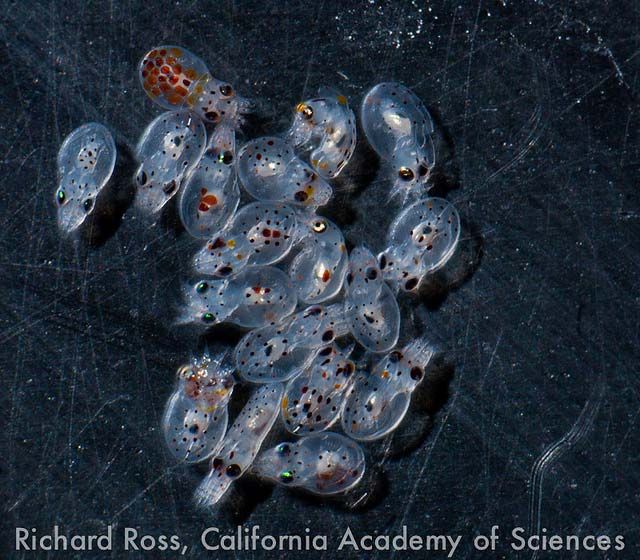Real Octomom Gives Birth to Little Octopods on Video

Here's something you don't see every day: the birth of thousands of octopi, caught on film.
These tiny octopuses are the offspring of a Caribbean Octopus vulgaris acquired by the Steinhart Aquarium at the California Academy of Sciences in San Francisco in January. Soon after the octopus moved into the aquarium, biologist Richard Ross writes on his blog at Advanced Aquarist, she surprised everyone by laying eggs. Three weeks later, those eggs hatched, turning the octopus' tank into a "snow globe" of baby octopi, or paralarvae. [See a close-up and video of the baby octopi]
Each hatchling is 0.04 inches (1 to 2 millimeters) long. After they were born, the aquarium fed the baby octopi even tinier brine shrimp and zooplankton. Unfortunately, Ross wrote, octopus paralarvae are difficult to keep alive in captivity, though many survived up to 26 days. [Video of hatching octopods]
The tale has a sad end for mom, too. This species of octopus stops eating after she lays her thousands of eggs and then dies soon after they hatch. The mother O. vulgaris lived about two weeks after her larvae emerged, Ross told LiveScience.
You can follow LiveScience senior writer Stephanie Pappas on Twitter @sipappas. Follow LiveScience for the latest in science news and discoveries on Twitter @livescience and on Facebook.
Sign up for the Live Science daily newsletter now
Get the world’s most fascinating discoveries delivered straight to your inbox.

Stephanie Pappas is a contributing writer for Live Science, covering topics ranging from geoscience to archaeology to the human brain and behavior. She was previously a senior writer for Live Science but is now a freelancer based in Denver, Colorado, and regularly contributes to Scientific American and The Monitor, the monthly magazine of the American Psychological Association. Stephanie received a bachelor's degree in psychology from the University of South Carolina and a graduate certificate in science communication from the University of California, Santa Cruz.










